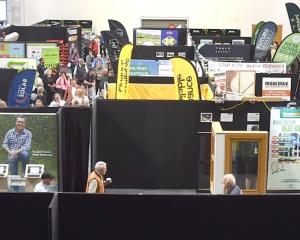
Gateway Solutions Ltd (formerly Silberhorn) and director Ian Carline gave up the bid for permanent name suppression at the Dunedin District Court today.
Elements of the investigation into the supplements previously promoted by Sir Colin Meads and Sir Bob Charles can now be revealed.
The case has had a protracted history, with an eight-week trial aborted the day it was due to begin last year.
It led to the company eventually admitting 24 charges of misleading conduct under the Fair Trading Act and one of failing to supply documents or information to investigators.
Carline - who stood as the Act party candidate for Invercargill in the 2011 election - also pleaded guilty to the latter charge.
After the charges were whittled down from 101 original allegations, comprising more than 20 batches of deer velvet product, sentencing was scheduled to proceed in February.
However, at that hearing, so many facts were disputed Judge Kevin Phillips adjourned it so they could be hammered out between the parties.
The case was called before the court again this afternoon so the judge could hear evidence on those issues.
At the heart of it was the labelling of the supplements.
It was accepted they were incorrectly labelled and did not contain the deer velvet they claimed to.
Defence counsel Judith Ablett-Kerr, QC, called it “corrate negligence”.
“[The label] should have been changed; it wasn’t changed,” she said.
However, Carline contended the new recipe was equal to or more effective than the previous one.
The Commerce Commission prosecution team headed by John Dixon, QC, will argue the misrepresentation was deliberate and done to increase company profits.
The parties also clashed over the revenue Silberhorn had made because of the mislabelling.
The court this week will hear evidence too on the Commerce Commission investigation.
“Mr Carline felt it was incredibly biased,” Ms Ablett-Kerr said.
Alongside that will be discussion in coming days about the search warrant which led to the prosecution.
The defendant believed it was too intrusive and claimed some items seized were not returned.
“That is obviously disputed by the commission,” Mr Dixon said.
Repeated requests by the Otago Daily Times for access to court documents detailing the case have been declined.
Sentencing is scheduled to take place after the week-long disputed facts hearing.
Ms Ablett-Kerr previously indicated she would apply for a discharge without conviction on behalf of Carline.














